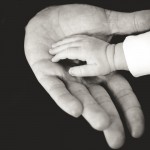Recovery is a long and often difficult road. But I won’t let my childhood sexual abuse and a twenty-year porn addiction stop me from cultivating innocence in the lives of my children. This is my story.

I was raised an evangelical Christian, and I always heard secrets would be shouted from the rooftops when Jesus returns. As a preteen, I thought that would come through someone stumbling upon my Internet search history. I had no idea that a combination of addiction and shame would eventually land me in ICU and a psych ward.
I was a victim of childhood sexual abuse before the age of four. When I was 12, I discovered porn. What started as teenage curiosity turned to fascination, and eventually a powerful addiction to pornography. For nearly ten years of my addiction, I was a youth pastor in the Bible Belt.
I lived in constant fear of my perfect image being shattered.
In my ultra-conservative upbringing, there’s room for recovering alcoholics and drug addicts, but there’s little to no room reserved for recovering porn addicts. There’s no freedom for any Christian–much less a pastor–to say, “my drug of choice is porn.” Just as terrifying was the fear my wife would eventually tire of my struggle, and decide I was not enough. I was certain if she really knew me, she would leave me. It sounds irrational now, but I would have rather died than face my shame.
All of these fears and secrets, coupled with a great deal of self-hatred, led me to the stay in ICU. After the doctors decided my liver wouldn’t fail, I was moved from the ICU to a brief stay in a psych ward. From there, my wife and I began a time of intense therapy.
We learned where boundaries should be and what recovery looks like. The day our marriage counselor connected the dots between my abuse, addiction, and suicide attempt changed my life forever. She helped us see the common thread through the whole story: shame. This is where my recovery began.
In the time between counseling and recovery, I started learning how to best deal with my depression. I stopped performing to earn others’ approval, and I got honest with myself and loved ones. I built a better relationship with my wife. Yet porn remained a part of my life.
For someone who knows nothing of this kind of secret keeping, my story must seem dirty and rare. Actually, I was in the majority, even as a self-proclaimed Christian. According to a report by the Barna Group, 64% of churchgoing men feel trapped by the cycle of porn use. That puts me in the category of many other “good men.” But I want to be more than just a good man. I want to live a life of dignity and integrity, which requires honesty and vulnerability.
Then one day, I was driving to the park to spend time with my 4-year-old son. As we drove, he spotted a bird out the window and asked, “What kind of bird is that, Dad?” I slowed down to look. As I glanced through the rearview mirror at my son, what I saw was him–my innocent little boy. He’d made it out of the year I was abused unscathed. I felt myself take a deep breath of relief. All at once I also felt something more: determination. I wanted to give my son a different life, a new example of what it means to be a man. I want to cultivate and protect his innocence.
Because I want to cultivate innocence for my son, I immediately installed an app on each of my devices to hold me accountable, because I’m still tempted to escape when I am frustrated or isolated. I have also started attending weekly recovery meetings. My life isn’t perfect today, but it is more open and honest than ever.
I am learning there are two battles in recovery: breaking free and staying free. Breaking free starts with a single moment of confession, but staying free requires boundaries, honesty, and knowing your triggers.
Knowing your triggers, those things that push you toward acting on your addiction, is vital. In order to have a strong offense, a person must have a stellar defense.
To win any battle, you must first know the enemy’s tools and tactics. Is your trigger a lunch break at work? Is it Saturday night while she’s out with friends? Do you struggle when you’re out of town on business trips?
Know your triggers so you can fight.
One of the first steps for me was finding new content to feed my soul rather than filling my mind with garbage. Now, instead of taking my phone with me to the couch at 2:00 a.m., I take a good book if I think I’m going to struggle getting back to sleep. When she’s gone for the night, I write blogs the old fashioned way–with pen and paper–and leave the computer alone. Or I go out with friends until bed time. Know your triggers so you can dig to the root of them.
I am learning about myself so I can continue to be my very best. Instead of condemning myself when I fall, I am learning to celebrate every victory, even small ones. I am committed to leaving my children a legacy of facing struggles head-on.
The demands of a professional career and family life didn’t start my journey of recovery. As many times as I heard sermons on holiness, church couldn’t fix me. My wife couldn’t do it for me. My kids weren’t even enough to make me stop. It wasn’t until I grew tired of constantly looking over my shoulder and covering my tracks that I began to want to change.
I am gaining more tools, strength, and support each day. I want to be the man my wife and children deserve, so I am taking active steps down this road to recovery. And that path is paved, brick by brick, with intentional steps of vulnerability, honesty, and courage.
*Originally posted on Covenant Eyes.
Join the Grace is Messy Tribe
Sign up to get access to the member’s library, stocked with resources and printables for you.












